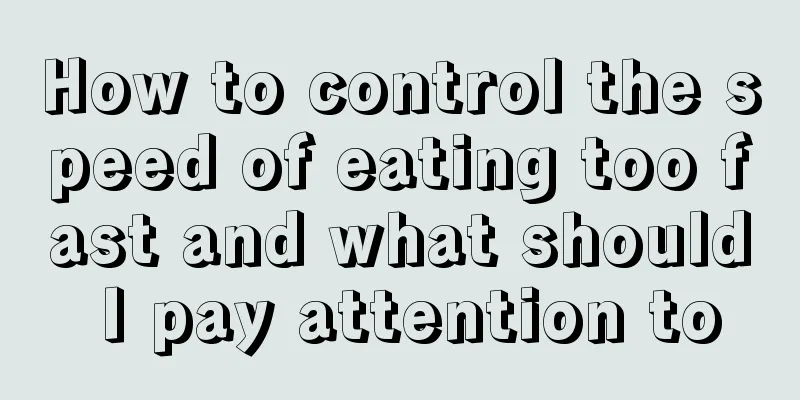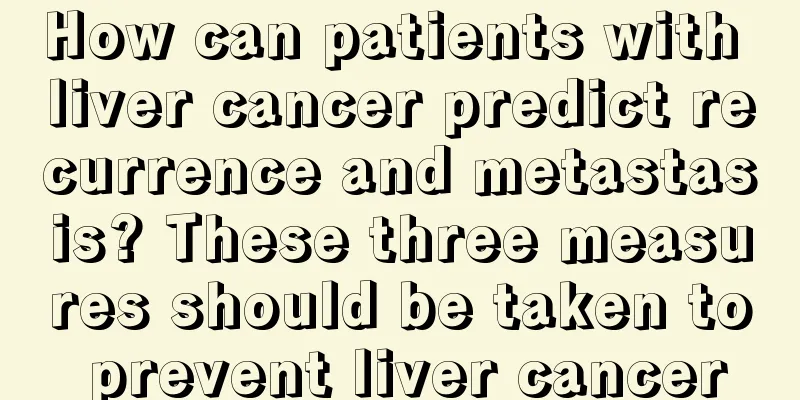What should I do if I suffer from insomnia due to staying up late for a long time?

|
Modern people are under great pressure at work, so they often work overtime and stay up late, have irregular diets, and have irregular rest time, which will inevitably lead to the occurrence of some diseases in the long run. Especially young people, they will have various social engagements at work, so they stay up late for a long time. So what should they do if they suffer from insomnia caused by staying up late for a long time? Insomnia will affect our normal life, and we will not be able to work normally the next day. Insomnia can also lead to other diseases, such as headaches, and constipation caused by toxins in the body, so it must be treated in time. (1) Improve sleep quality and/or increase effective sleep time; (2) Restore social function and improve the patient's quality of life; (3) Reduce or eliminate the risk of physical diseases related to insomnia or comorbid physical diseases; (4) Avoid the negative effects of drug intervention. 2. Intervention methods Intervention measures for insomnia mainly include drug treatment and non-drug treatment. For patients with acute insomnia, early drug treatment is recommended. For patients with subacute or chronic insomnia, whether primary or secondary, psychological and behavioral treatment should be used in addition to drug treatment, even for those insomnia patients who have been taking sedatives and hypnotics for a long time. The main effective psychological and behavioral treatment for insomnia is cognitive behavioral therapy (CBT-I). Other non-drug treatments other than psychological and behavioral therapy, such as diet therapy, aromatherapy, massage, homeopathy, light therapy, etc., lack convincing large-sample controlled studies. Traditional Chinese medicine has a long history of treating insomnia, but due to its unique individualized medical model, it is difficult to evaluate using the modern evidence-based medicine model. The importance of sleep health education should be emphasized, that is, psychological behavioral therapy, drug therapy and traditional medicine treatment should be carried out on the basis of establishing good sleep hygiene habits. 3. Drug treatment for insomnia Although there are many types of drugs with hypnotic effects, the primary use of most of these drugs is not to treat insomnia. Currently, the drugs used in clinical treatment of insomnia mainly include benzodiazepine receptor agonists. 4. Physical therapy Repetitive transcranial magnetic stimulation is a new non-drug treatment for insomnia. Transcranial magnetic stimulation is a new technology that provides magnetic stimulation to specific parts of the human skull. It refers to the process of repeatedly stimulating a specific part of the cortex. The above are some ways to treat insomnia caused by staying up late for a long time. We still need to change our lifestyle, not stay up late often, and try our best to develop good living habits. You can use medication to treat it, but it should be done under the guidance of a doctor and not by yourself blindly. Also pay attention to eating more nutritious foods. |
<<: What are the symptoms of cranial nerve compression?
>>: What is lower gastrointestinal tract radiography?
Recommend
How to demagnetize garnet
We all know that the garnet we just bought needs ...
Should I take CT or X-ray for a fracture
After a fracture occurs, first aid measures shoul...
What are the effects of green lily?
Modern people like to plant some flowers and plan...
Can people with chickenpox eat soy sauce?
Varicella is a highly contagious skin disease. Mo...
How to quickly chop meat
People who like to make buns and dumplings at hom...
How long can you keep expressed breast milk before drinking it? How should you store it correctly?
Nowadays, the average maternity leave is within t...
What are the drugs for treating glaucoma
If you use some drugs to treat glaucoma, you shou...
When to use the base lotion
Many people don't quite understand the differ...
What is the reason why teeth float?
The human body is prone to some minor problems in...
Dietary arrangements during the recovery period of endometrial cancer
Many patients think that the disease will be able...
Will teratoma recur after surgery?
Ovarian teratoma is a common ovarian germ cell tu...
Diet after sigmoid colon cancer surgery
In our lives, food is irreplaceable, I believe ev...
Can color Doppler ultrasound detect rectal cancer?
Rectal cancer is a common cancer that causes grea...
Sweating and vomiting
In people's daily lives, many people experien...
It hurts when pimples appear under the nose
Many people love beauty very much, but because of...









